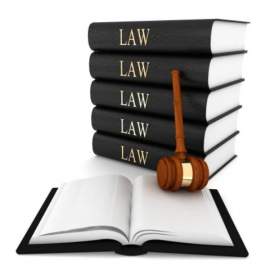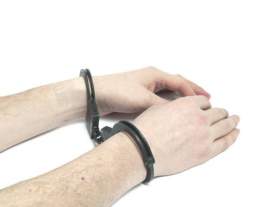
The Guide to Owners & Occupiers

Outside of the Premises
The concerns for areas outside of the premises of a given property deal with the condition of such a property. This is in direct regards to certain factors and attributes such as structural or fixtures on the property that could have an effect on the immediate areas surrounding it. Any disturbance to the area outside of the premises is a public nuisance and can present itself in many different ways.
This can deal with things such as noise, and odor, as well as unseen damages by emissions on a commercial property. There are regulations that prevent property owners from disrupting people in such proximity to their property to prevent issues that negatively affect the public. Also, there are matters that protect the livestock on a property from noise nuisance in some cases, so these would be in respect to animals and not just the people around the premises.
Trespassing Adults
The term trespassing adults refers to any person who has been found to be entering, occupying, or traveling through a property that is owned by someone else without that owner’s permission or consent. Because the person is an adult by the age standards set, they are subject to facing trespassing charges as an adult for their actions. These people do not hold licenses or “invitations” to make use of such property and in addition may be in direct violation to postings that warn people of prosecution due to their trespass.
The trespassing committed can vary in nature and description, which are the determining factors for punishment. The punishment for adults is more grave than that for minors, dependant on the details of the act committed. A trespass can also relate to a person violating a person’s personal space if they choose to attack them physically in some instances.
Trespassing Minors
Trespassing minors deals with unlawful occupancy over a property by a person who is deemed a minor by the age statutes set. In most cases there are individuals who occupy a property without permission or consent for their own mischievous purpose, commonly among teenagers. Most trespassing charges with such youths deal with loitering on abandoned property, or sometimes causing damage to property due to peer pressure.
An example of trespassing minors would be a group of minors entering a commercial property such as a factory to throw rocks at windows of the building. The crossing of the fence alone is considered trespassing, unless there was no fence and the individuals entered through an implied license or invitation such as that of being in a mall parking lot and committing the same action. Regardless, the damage to the structure is still a crime on its own, the question of trespass would be dismissed.
Licensees
Licensees are persons that are given a license, as a form of permission, to enter a property lawfully. Such persons are to enter the property for a reason that does not have to be in the best interest or benefit of the owner. By being granted the license to enter and occupy such property, this individual is exempt from trespassing status, and is completely abiding with the law. Licensees are typically regarded with less respect and/or benefits than an invitee. An example of a licensee would be a person entering a field to watch a game on the bleachers of that field, that is owned by the town, county, or other organization. This person is free to enter and leave the property as posted, but the owners of the field are not responsible for that person while on their property.
Invitees
Invitees, like licensees, have the lawful right to enter, occupy, and travel through a property with the permission and consent of the owner. Invitees are typically patrons of restaurants, bars, etc.. and customers of retail stores, and other types of stores. These individuals have the right to enter the premises and occupy the space for the purpose of eating or shopping, so that the owner of that property conducts business.
The difference between an invitee and a licensee, is that they benefit in case any harm is caused to them while occupying such a property. The owner is liable to keep an invitee safe while on the property, and avoiding any harm or danger that may present themselves to the person. This includes informing the customers and patrons of any impending danger they may endure while visiting the property. If they are subject to any injury, then the owner if the property is liable for the damages caused.
Abolition of Categories
The abolition of categories such as licensees and invitees was made in certain jurisdictions to avoid favoring one lawful entrant over another. It started in England and made its way over to the United States shortly after. A few cases presented themselves of personal injury in properties where the owner was believed to be liable, even though the person injured was a licensee. Court battles were won by these individuals, which in turn abolished the categorization of an invitee and a licensee.
This gave both parties equal rights to be treated the same in case of an injury while occupying the property. After the first case, others occurred in varying states which caused these jurisdictions to join in. Although most states joined, some did not and still keep a distinct separation of licensee and invitee.
Lessor & Lessee
Lessor is a person who chooses to transfer ownership over their land to a new person, assuming the responsibilities over that land. The lessee is the occupant that takes ‘ownership’ of that land for a specified period of time and fee, as stated in a lease agreement. This occurs mainly with an owner renting out a piece of property for a given term.
Once the lessee takes possession of such property, they are responsible for maintaining it, the things that occur on the property and around it. The owner is not liable for any harm caused to people on the land unless he had prior knowledge and did not notify the new occupant prior to transfer. In the lease agreement, the lessee does not receive the title of the property, simply a ‘temporary ownership’ of it.
A vendor and vendee are established when property is sold from by its current owner, to a new owner. The buyer of such property is recognized as the vendee, while the seller is known as the vendor. Once the property has been purchased, the title of that property is conveyed to the vendee, and full ownership of that property is acquired. Along with ownership, the vendee assumes all the rights and responsibilities that an owner of that property must endure.
The former owner (vendor) is relieved of all duties of ownership that prior belonged to him. Any injuries that occur on the property or harm to others, are now held liable to its current owner. The only way such liability would belong to the prior owner, is if he did not notify prior to or at the time of purchase, to the buyer, that such dangers existed on the property or could exist at a given point in time. In this case, the failure of information could result in the liability being turned over to the vendor, rather than the vendee.
NEXT: The Importance of Local Taxes Post WWII





















